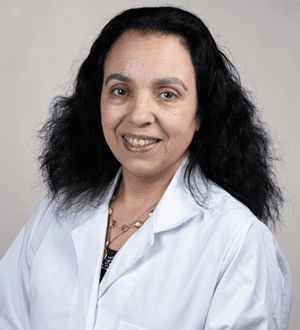Colon cancer treatment in Israel
Thanks to the efforts of the clinic’s medical team, 74% of those suffering from malignant tumors of the colon and small intestine cancer of stages 1 and 2, and often stage 3, have been completely cured.
In 41% of cases, the Hadassah Clinic surgeons were able to replace open surgery to remove an intestinal tumor offered to a patient at another medical center with a successful minimally invasive intervention.
About 4% of rectal cancer, when the tumor is located closer to the anus, the oncologists of Hadassah have learned to treat exclusively with immunotherapy, without radiotherapy, chemotherapy or colostomy withdrawal surgery.
Oncologists at the Hadassah Clinic find no sign of colon cancer in 23 percent of international patients who come to the clinic with this diagnosis. Instead of colorectal cancer or a small intestine tumor, doctors at the clinic often diagnose polyps, acute inflammatory processes and other pathologies, diseases that have been managed with medication or sparing laparoscopic surgery, preserving the digestive organs completely.
Make an appointment with the Israeli leading specialists.
Colon cancer diagnostics in Israel

DISCOVERY MI PET-CT
Colonoscopy is a common procedure used to examine the inside of the colon and rectum. During the procedure, a flexible tube with a camera is inserted through the anus, allowing the doctor to examine the walls of the colon for any abnormalities or signs of cancer. Colonoscopy is considered the gold standard for detecting colon cancer, as it allows for both visualization and biopsy of suspicious areas.
Virtual colonoscopy, also known as computed tomography (CT) colonography, is a non-invasive alternative to traditional colonoscopy. The procedure uses a CT scanner and computer software to create detailed images of the colon and rectum. Virtual colonoscopy is not as accurate as traditional colonoscopy in detecting small polyps or growths, but it is useful for screening large populations for colon cancer.
Biopsy is a diagnostic technique that involves the removal of a small sample of tissue from the colon for examination under a microscope. Biopsies are usually performed during a colonoscopy or surgery and can help determine the stage and severity of colon cancer.
Capsule endoscopy is a newer diagnostic tool that involves swallowing a small, camera-containing capsule that takes pictures of the inside of the digestive tract as it passes through. The capsule is then eliminated through the stool. Capsule endoscopy is useful in detecting small intestine tumors that are difficult to reach with traditional colonoscopy or enteroscopy.
Enteroscopy is a procedure that involves inserting a flexible tube with a camera through the mouth or anus to examine the small intestine. Enteroscopy is useful in detecting tumors or abnormalities in the small intestine that may be missed during colonoscopy or virtual colonoscopy.
CT scan, MRI (mainly used for rectal cancer), PET-CT, abdominal ultrasound – all these imaging methods are designed to establish the exact localization of the neoplasm and determine the spread of metastases.
At the beginning of 2018, the Hadassah Clinic started using a unique PET-CT device, the DISCOVERY MI model by General Electric.
Its accuracy is 70% higher than that of previously used devices, and its sensitivity is 90% higher. In other words, it can detect tumors 2-3mm in diameter, i.e. at the earliest stage. Until recently, this was not possible.
Before surgery, a number of examinations are performed to check the body’s ability to withstand the load and minimize the risk:
- A X-ray chest
- ECG
- Expanded blood work
- Cardiac cartography
At the Hadassah Clinic, a team of highly skilled gastroenterologists and oncologists work together to provide the best possible care for patients with colon cancer.
Treatment methods for colon cancer in Israel
A cancerous mass of the colon or small intestine can only be completely eliminated by surgery; drugs are only an adjunct. The more important is the skill of the oncological surgeon, his experience and the ability to determine the optimal amount of surgical intervention.
Surgery

Professor Alon Pikarsky, Head of the Surgery Department, Head of the Colorectal Surgery Center
In a number of situations an innovative technique is used – hyperthermal intraperitoneal chemotherapy HIPEC. After removal of pathologically overgrown tissues, a heated chemotherapeutic agent is delivered directly to the intervention area using a special device. This allows the effects of chemotherapy to be greatly increased and side effects to be avoided as the medications are delivered directly to the internal tissues, bypassing the bloodstream. At Hadassah, HIPEC is performed by Prof. Pikarski.
Prof. Pikarski performs laparotomy (open incision of the abdominal wall) only when all other options have been exhausted; open surgery is always performed at the highest level, without errors or side-effects.
Immunotherapy
Immunotherapy is used today in Israel to treat colon cancer in patients with the MSI (“condition of genetic instability”, predisposition to mutations) phenotype. The patient is prescribed the latest drugs that successfully stop the growth of the tumor.
In Israel, treatment protocols for stage 4 colon cancer include only supportive chemotherapy and biological drugs, surgery is not applicable at this stage. However, the use of advanced drugs helps Hadassah oncologists to neutralize the symptoms of the disease and greatly improve the patient’s well-being.
Targeted therapy
Targeted therapy has revolutionized the treatment of colon cancer and has significantly improved outcomes for patients with this disease.
Targeted therapy involves the use of drugs that specifically target cancer cells and their surrounding environment, sparing healthy cells from toxicity.
Monoclonal antibodies are a type of targeted therapy used in the treatment of colon cancer. These antibodies are designed to recognize and bind to specific proteins on the surface of cancer cells, thereby blocking their growth and spread. Examples of monoclonal antibodies used in colon cancer include Bevacizumab, Cetuximab, and Panitumumab. These drugs have been shown to improve survival rates in patients with advanced colon cancer.
Inhibitors of angiogenesis are another type of targeted therapy used at the Hadassah Clinic for colon cancer treatment. These drugs work by blocking the formation of new blood vessels that supply nutrients and oxygen to cancer cells, thereby inhibiting their growth and spread. Examples of angiogenesis inhibitors used in colon cancer include Aflibercept, Ramucirumab, and Regorafenib.
Kinase inhibitors are a class of drugs that target specific enzymes involved in cancer cell growth and survival. They are used in the treatment of advanced colon cancer that has spread to other parts of the body. Examples of kinase inhibitors used at the Hadassah Clinic for colon cancer treatment include Imatinib, Sorafenib, and Sunitinib.
How to come to the Hadassah Clinic for medical treatment?
In order to come to the Hadassah Clinic in Jerusalem, Israel for medical treatment, first contact Hadassah University Hospital staff to discuss your medical condition and treatment options.
Once you have received confirmation that the clinic can provide the necessary medical care, you should obtain a medical visa from the Israeli embassy in your country and make travel arrangements. Finally, ensure that you have all necessary medical records and documents before you depart for the clinic.
Make an appointment with the Israeli leading specialists.













